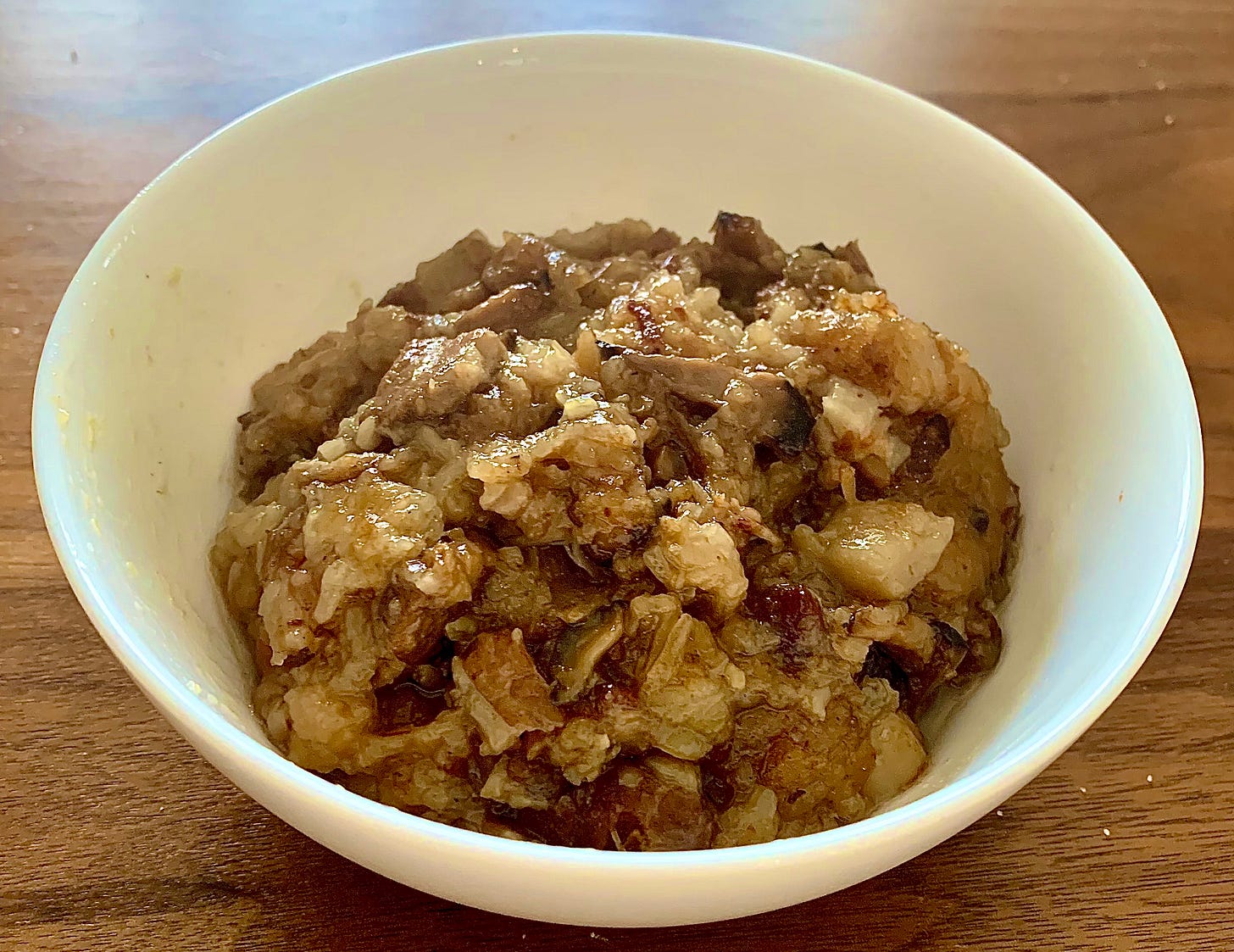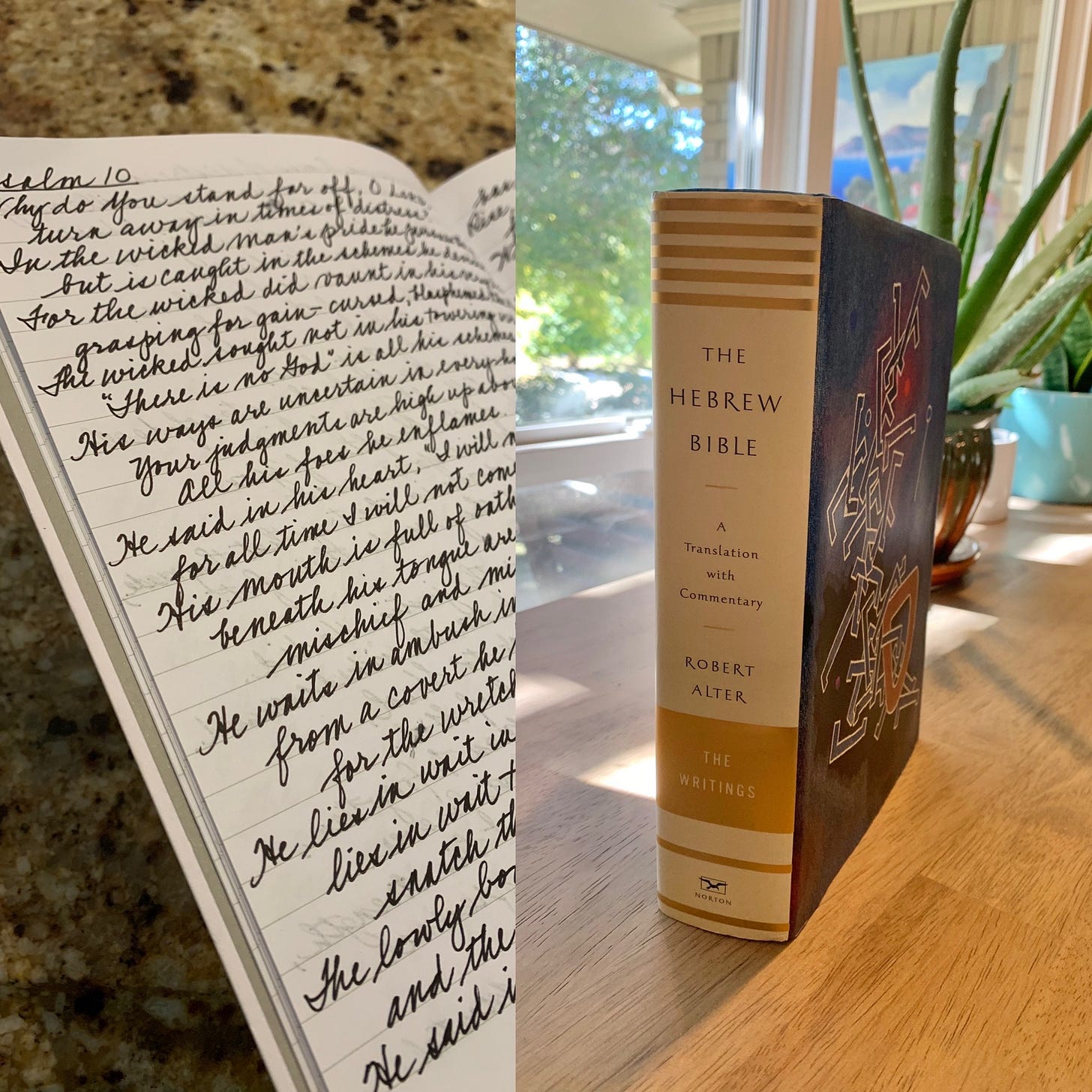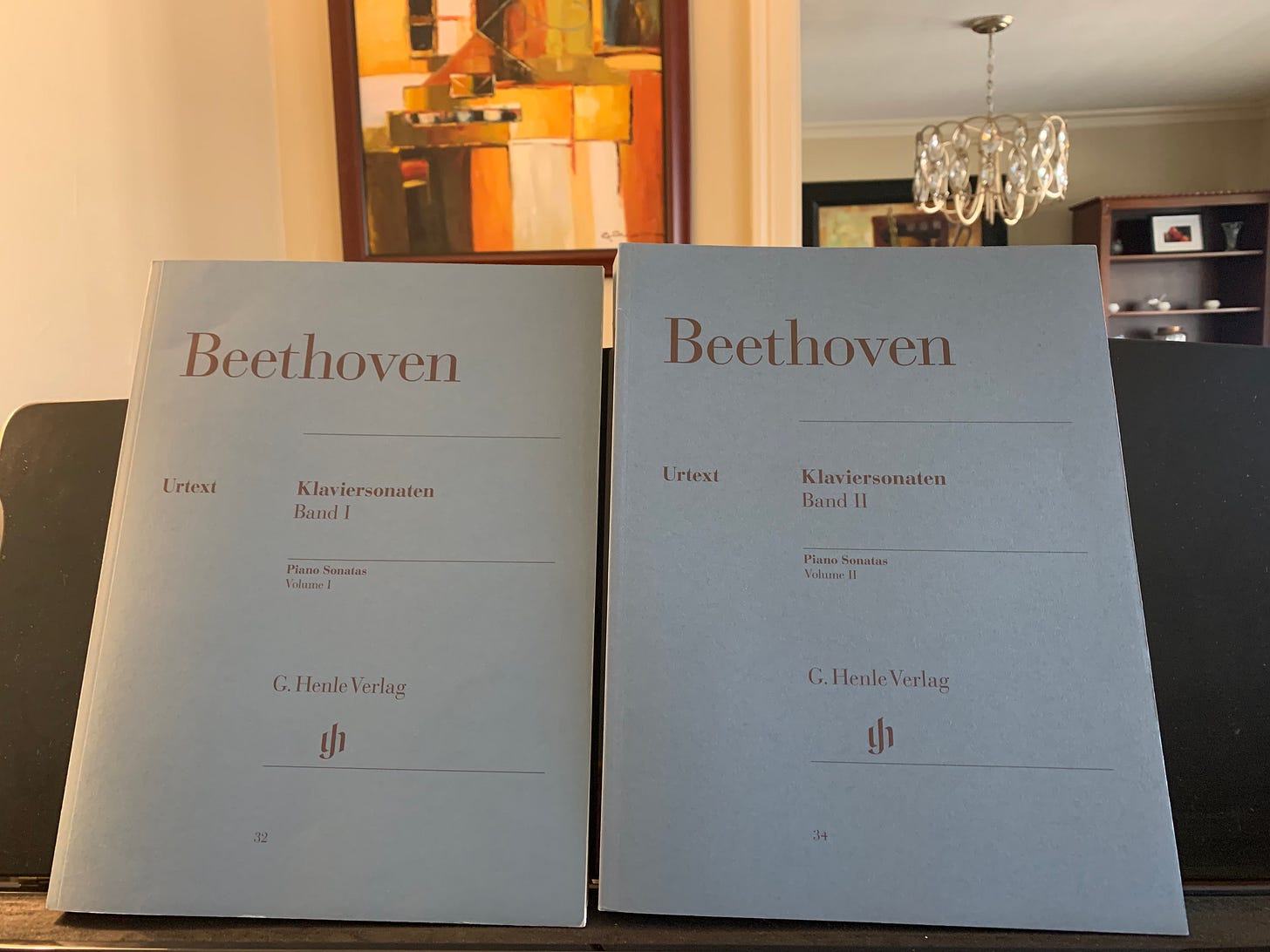A Quick Update
And some thoughts about silence at the end
Hello there. I thought I’d drop a few quick bullet-point updates for my readers to let you all know that I haven’t abandoned my perch. I’ve just been keenly focused on being present to my family, flexing my creative muscles in different ways, and trying to discern God’s voice better through silence. Since my last post about two months ago…
I came down with COVID in late December. SARS-CoV2 is an unusual virus. Everyone seems to have a different course. There are widely varying symptoms among my friends who have had it. Some have had only a headache and mild fatigue. Many have had flu-like symptoms with the usual nasal congestion and cough. Others have had fever, malaise, and body aches. One friend had seizures and vertigo. As for me, I had a fever of 101.5F for a day, followed by 5 days of low-grade fever (100.0-ish) and annoying to painful muscle aches that mostly affected my back. It was unseasonably warm the week I was dealing with the Rona, so I spent a good bit of time in the back yard getting as much sunshine as I could when I wasn’t sequestered in my room. During my days of isolation, I listened to the audio version of Dune, binge-watched The School of Chocolate (because Amaury Guichon is a total genius), and watched the entire Korean drama series, The K2. I also took in a few movies: Don’t Look Up (a film for our times and in my opinion a better version of what Idiocracy attempted to do), 14 Peaks (the incredible story of a group of Nepalese mountain climbers who climbed 14 of the world’s highest mountains in 6 months—to make a point!). In the weeks since that acute phase, I’ve had an itchy rash that flares up and recedes as well as a slightly salty taste in the back of my tongue that lingered for a couple of weeks, went away, and then came back this morning (shrug). I mostly feel fine, though.
I’ve been learning to cook some of my favorite Chinese and Taiwanese dishes from childhood. As my parents have aged and my daughter has entered her preteen years, it has become important to me to preserve some of the cultural traditions of my parents’ home country (Taiwan) and pass them on to her.
I’ve been writing out the Psalms by hand in a journal. I’m using Robert Alter’s translation, The Hebrew Bible.
I sewed a Renaissance Day costume for my daughter using an old king sheet and leftover fabric from a reupholstering project. It took three days to complete.
I’ve been spending a LOT of time at the climbing gym. My daughter is a competitive rock climber, and she climbs about 12 hours a week now. Despite the fact that I have broken my leg, torn a meniscus, and had to undergo knee surgery this past year because of climbing, there’s still something about the sport that I connect with on a deep level. I love it. I could write an entire post just about climbing. There are so many metaphors to mine. Another time, though. My daughter said to me last week, “It’s been really nice having you around.” When I responded, “But I’ve always been around,” she said, “I mean without you being distracted by something you’re writing.”
I’m currently playing through the entire collection of Beethoven piano sonatas.
Silence
Back in November, I told my best friend that I felt like I was in a gestational season. I could sense that there was growth and rapid change taking place in me, but it felt shrouded in mystery—hidden from view. And silent. In fact, silence seemed like the primary characteristic of this gestational season.
For many months now, I’ve been experiencing internal tension around the very act of writing, as if every attempt to express things in words violates my need for silence—both the experience of silence around me and the need to be silent. This need works in opposition to my usual impulse as a writer: to speak, to articulate, to express, to influence. I was finally able to wrap my mind around it when I picked up Henri Nouwen’s The Way of the Heart and began re-reading it. Consider that he wrote these words in 1981 (from the section, “Our Wordy World”):
Over the last few decades we have been inundated by a torrent of words. Wherever we go we are surrounded by words: words softly whispered, loudly proclaimed, or angrily screamed; words spoken, recited, or sung; words on records, in books, on walls, or in the sky; words in many sounds, many colors, or many forms; words to be heard, read, seen, or glanced at; words which flicker off and on, move slowly, dance, jump, or wiggle. Words, words, words! They form the floor, the walls, and the ceiling of our existence.
…
All this is to suggest that words, my own included, have lost their creative power. Their limitless multiplication has made us lose confidence in words and caused us to think, more often than not, “They are just words.”
…
The result of this is that the main function of the word, which is communication, is no longer realized. The word no longer communicates, no longer fosters communion, no longer creates community, and therefore no longer gives life. The word no longer offers trustworthy ground on which people can meet each other and build society.
He continues in the next section, “Silence”:
Silence is the home of the word. Silence gives strength and fruitfulness to the word. We can even say that words are meant to disclose the mystery of the silence from which they come.
…
For [the Desert Fathers] the word is the instrument of the present world and silence is the mystery of the future world. If a word is to bear fruit it must be spoken from the future world into the present world. The Desert Fathers therefore considered their going into the silence of the desert to be a first step into the future world. From that world their words could bear fruit because there they could be filled with the power of God’s silence.
…
St. Benedict not only warns his brothers against evil talk, but also tells them to avoid good, holy, edifying words because, as it is written in the book of Proverbs, “A flood of words is never without its faults” (Proverbs 10:19). Speaking is dangerous and easily leads us away from the right path.
…
Diadochus of Photiki offers us a very concrete image: “When the door of the steamboat is continually left open, the heat inside rapidly escapes through it; likewise the soul, in its desire to say many things, dissipates its remembrance of God through the door of speech, even though everything it says may be good. Thereafter the intellect, though lacking appropriate ideas, pours out a welter of confused thoughts to anyone it meets, as it no longer has the Holy Spirit to keep its understanding free from fantasy. Ideas of value always shun verbosity, being foreign to confusion and fantasy. Timely silence, then, is precious, for it is nothing less than the mother of the wisest thoughts.”
These words of Diadochus go against the grain of our contemporary lifestyle, in which “sharing” has become one of the greatest virtues. We have been made to believe that feelings, emotions, and even the inner stirrings of our soul have to be shared with others… But let us at least raise the question of whether our lavish ways of sharing are not more compulsive than virtuous; that instead of creating community they tend to flatten out our life together.
…
What needs to be guarded is the life of the Spirit within us. Especially we who want to witness to the presence of God’s Spirit in the world need to tend the fire within with utmost care… Sometimes it seems that our many words are more an expression of our doubt than of our faith. It is as if we are not sure that God’s Spirit can touch the hearts of people: we have to help him out and, with many words, convince others of his power. But it is precisely this wordy unbelief that quenches the fire.
You get the idea. There’s so much wisdom in these pages. Even as I lament my general feeling of words having lost their value in our wordy world (a pickle of a feeling to contend with as a writer), a world greatly afflicted with diarrhea of the mouth (or fingers, since we mostly type things into our various devices now for word distribution), I’m aware that Nouwen’s words (yes, words!) are injecting life into my spiritual veins. They are not “just words”; they are words aptly spoken. From my own season of relative silence, I hope to emerge with aptly spoken words sourced by the silence of God.
Peace,
Judy











Wow! Your whole post speaks to me. Wow. I went through a time of silence on my blog as well and am just now picking it up again. My horse died in June. I posted about that and didn’t go back until Advent. I so hear you about wordy words. There’s been a movement in my life to not feel I have to “fix it” when I listen to people which goes along with what you and Nouwen said about letting the Spirit do his/her work.
I have become aware of how much noise and distraction has come into my life. Johann Hari’s book Stolen Focus has spoken in ways that other books haven’t with regards to this.
I hope you write about climbing one day too. And maybe share some of those recipes.
At any rate thank you.